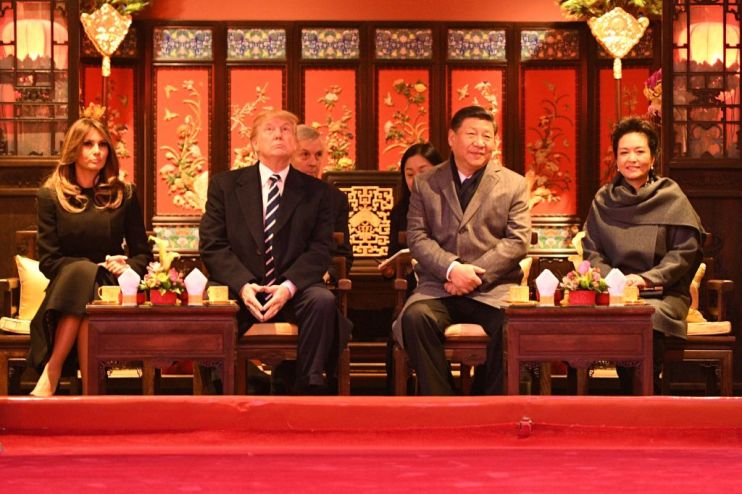Huawei: The fake choice between US and China will weaken the world economy

Over the last year, the UK and its European partners have been asked to make a false choice between the US and China.
What started with a series of false claims about Huawei’s role in telecoms infrastructure has broadened into a wider campaign that places the very concept of globalisation and the global economy at risk.
Read more: Trump gives Huawei another 90-day reprieve on trade ban
We have seen isolationists call for Western countries to stop using Chinese technology, or from even developing technology in China. This sort of action could have a devastating impact on global innovation, the bedrock of all our future prosperity.
Policymakers should reject binary arguments and instead work to build a consensus with industries, businesses and other nations to reinforce the principles of free trade and rejuvenate the global trading system.
Globalisation created the modern technology industry. Today, products are ‘made in the world’ using components and software from dozens of countries. The typical smartphone has thousands of components and elements sourced from many different countries and is sold worldwide.
The benefits to all societies have been enormous. We must not take this for granted. Global supply chains benefit billions of people every day. They provide access to cutting edge technology at affordable prices, they create jobs and improve the quality of life in communities around the world.
This is only possible because of the rules-based global trading system created by the liberalisation of the 1990s. This saw businesses and governments worldwide cooperate to reshape rules and reduce tariff and non-tariff barriers.
As part of this process, the world’ s largest tech companies from the US, UK, Europe and Asia helped develop a new global zero-tariff agreement that covered over 90 per cent of the technology trade.
The Information Technology Agreement – agreed at the Singapore Ministerial Conference in December 1996 – was a huge boost to innovation as it made it easier to collaborate across borders and gave businesses the certainty they needed to invest. The global growth it sparked helped support Huawei’s early steps in going global.
Read more: Huawei rewards staff with $286m bonuses in US sanctions fight
For the past two years global trade has declined, driven by escalating trade conflict between the US and China. Simultaneously the authority of the World Trade Organisation to resolve international trade disputes has diminished.
Resulting tariff barriers have reduced global commerce and international co-operation and this has had an indirect and damaging impact on cyber security.
Most people in China have Android on their phones and Windows on their laptops.
European countries and China face common cyber security risks because they use the same hardware and software. This creates powerful incentives for cooperation that would be reduced by moves to split the world into two separate technology camps.
This is not scaremongering from the tech sector. The biggest threats don’t respect national boundaries. For example, international cooperation was critical to responding to the devastating WannaCry ransomware attack that crippled computers in NHS hospitals in the UK and affected universities and businesses across China in 2017.
Common standards for 5G, AI and cyber security are the best way to ensure that new technology boosts economic growth and security. Competitive markets are crucial to guaranteeing telecoms and technology companies don’t become overly reliant on single suppliers – creating vulnerabilities in critical systems. Both will be harder to achieve if free trade is disrupted.
Read more: ECB urges governments to hike spending to save economy
Multilateralism appears to have fallen out of fashion. Instead of pursuing isolation, policy makers and business should summon the spirit of the ’90s and come together to reinvigorate the global trading system and agree strong, new cyber security rules that apply to all – supported by robust monitoring mechanisms that help build confidence.
Ultimately no country should be forced to choose between trading westwards or eastwards or between the US, the EU, or China.
Along with cooperating on cyber security, trade with each and all is good for prosperity, peace, and progress – which is surely a good base for finding common ground across the world, from Shoreditch to Seattle and Shenzhen.
Victor Zhang is Huawei president for global government affairs